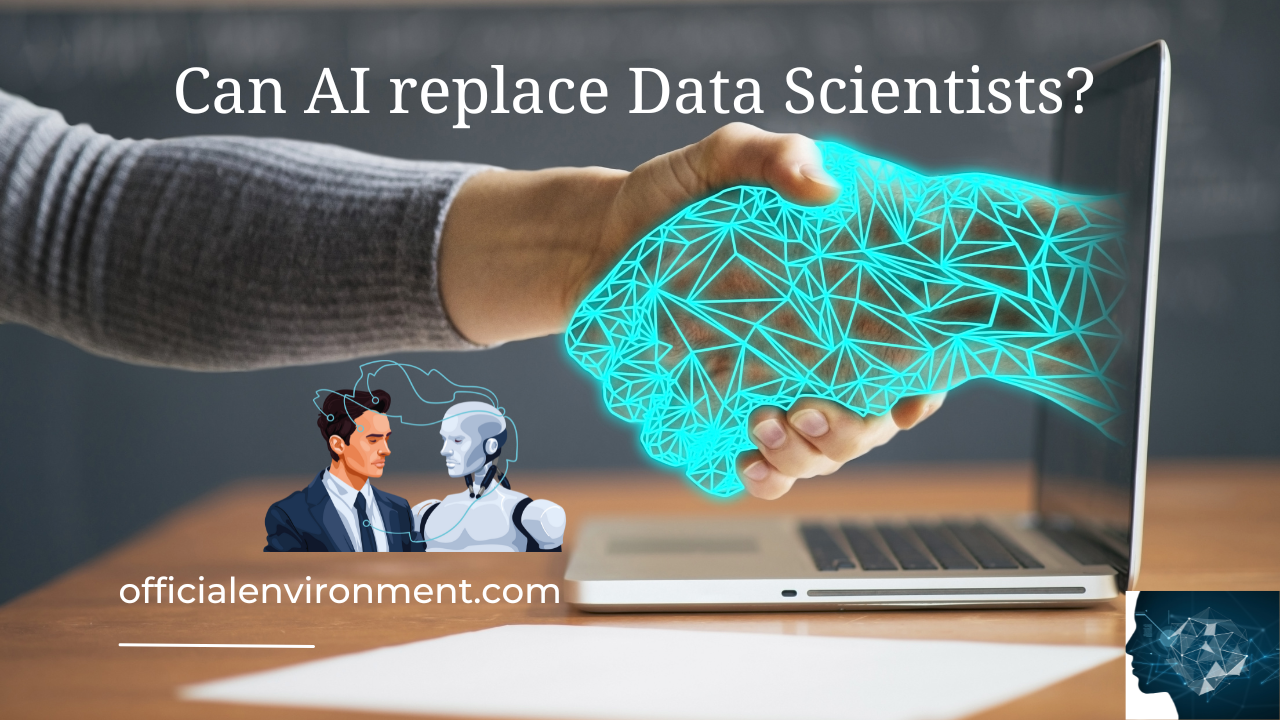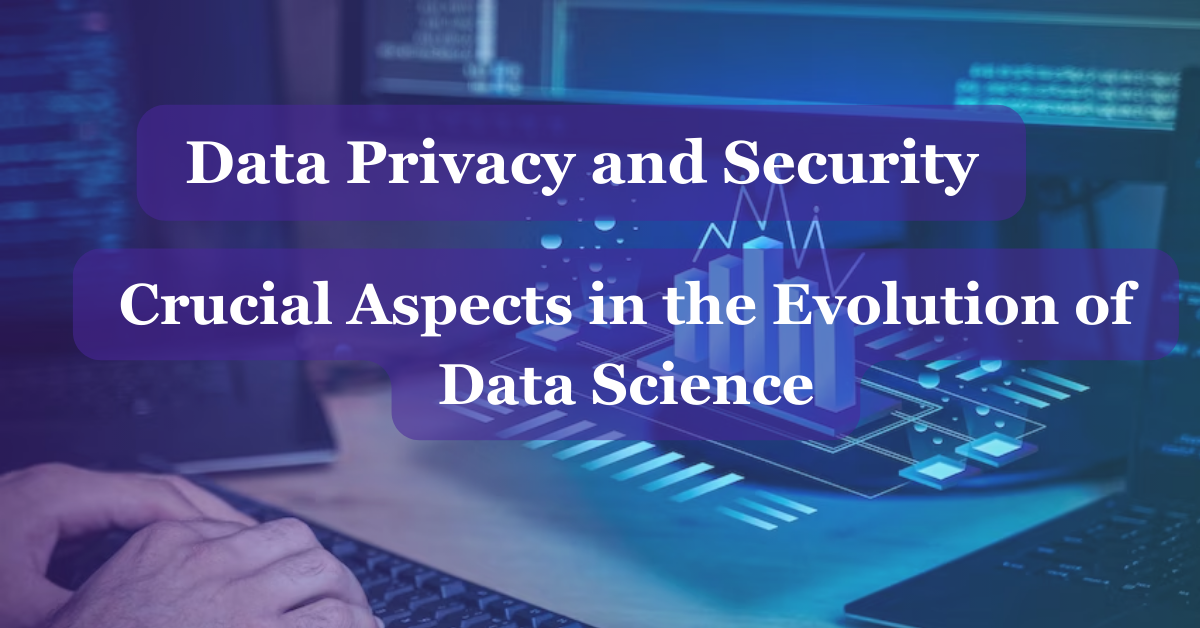Dispelling the Myth: AI as a Replacement for Data Scientists
The Myth of Absolute Automation
One common misconception is that AI can entirely replace data scientists, rendering their skills and expertise obsolete. However, this notion needs to be more accurate in the multifaceted role of data scientists, neglecting the nuanced aspects of their work that extend beyond algorithmic automation.
The Human Touch in Data Science
Data science encompasses not only technical proficiency but also domain expertise, critical thinking, and effective communication. These human-centric qualities are integral to interpreting complex results, understanding contextual nuances, and communicating findings to non-technical stakeholders. AI, as of now, needs more holistic understanding and creativity that human data scientists bring to the table.
The Current State of AI in Data Science
Automation in Data Preprocessing
AI has made significant strides in automating specific aspects of data science, particularly in data preprocessing. Tasks such as data cleaning, imputing missing values, and feature engineering can now be streamlined using machine learning algorithms. Automated tools can identify patterns, outliers, and correlations, expediting the preliminary stages of data analysis.
Automated Machine Learning (AutoML)
The rise of AutoML platforms has democratized machine learning capabilities, allowing users with limited expertise to leverage AI for model selection, hyperparameter tuning, and feature engineering. While these tools augment accessibility, they are not replacements for the strategic thinking, problem-solving skills, and domain knowledge that human data scientists contribute.
Natural Language Processing (NLP) for Data Interpretation
Natural Language Processing (NLP), a subset of AI, is employed for interpreting and extracting insights from unstructured data sources such as text. Sentiment analysis, entity recognition, and topic modeling benefit from NLP algorithms, enhancing the efficiency of analyzing textual data. However, the interpretation and application of these insights within a broader business context remain firmly within the domain of human data scientists.
The Strengths of Human Data Scientists
Contextual Understanding
Human data scientists possess a profound contextual understanding that extends beyond algorithms and models. Their domain knowledge and comprehension of specific industries enable them to align data-driven insights with real-world scenarios. This contextual understanding is crucial for ensuring the relevance and applicability of analytical results.
Creativity and Problem-Solving
Data science often involves navigating through complex problems that lack straightforward solutions. Human data scientists leverage creativity and problem-solving skills to devise innovative approaches, experiment with methodologies, and adapt to unforeseen challenges. These qualities are challenging for AI to replicate entirely.
Ethical Considerations and Decision-making
Data science, especially in the context of sensitive data and algorithmic decision-making, involves ethical considerations. Human data scientists navigate ethical dilemmas, make nuanced decisions and ensure the application of AI aligns with ethical standards. The infusion of ethical considerations into decision-making processes requires the judgment and understanding that human data scientists provide.
Communication and Stakeholder Engagement
Effective communication is a cornerstone of data science, especially when presenting findings to non-technical stakeholders. Human data scientists possess the ability to translate complex technical insights into actionable information, fostering collaboration with business leaders and cross-functional teams. The nuanced communication skills of human data scientists remain irreplaceable in conveying the implications of data analyses to diverse stakeholders.
Potential Scenarios: Collaboration Over Replacement
Augmented Intelligence
Rather than envisioning a future where AI entirely replaces human data scientists, a more realistic scenario involves augmented intelligence. Augmented intelligence emphasizes collaboration between humans and AI to enhance collective capabilities. AI tools can automate routine tasks, allowing data scientists to focus on more complex and strategic aspects of analysis, such as formulating hypotheses, designing experiments, and interpreting results in a business context.
Focus on Value-Added Activities
As AI takes on routine tasks, human data scientists can redirect their efforts toward value-added activities. This includes exploring new data sources, identifying novel approaches to problem-solving, and devising strategies for integrating data science into broader business strategies. The shift towards strategic and creative aspects of data science enhances the overall impact of the discipline within organizations.
Continuous Skill Enhancement
The integration of AI in data science underscores the importance of continuous skill enhancement for data scientists. The ability to understand, interpret, and leverage AI tools requires ongoing learning and adaptation. Data scientists can focus on acquiring expertise in areas where AI complements human skills rather than competes directly.
Ethical Considerations in the Rise of AI in Data Science
Bias and Fairness
The integration of AI in data science brings forth ethical considerations, particularly regarding bias in algorithms. Historical data used to train AI models can perpetuate biases, potentially resulting in discriminatory results. Human data scientists play a crucial role in identifying and mitigating biases, ensuring fair and equitable applications of AI.
Privacy Concerns
Handling sensitive and personal data raises privacy concerns in data science. As AI systems become more sophisticated, stringent privacy measures are necessary to protect individuals' information. Human oversight is crucial in establishing and enforcing privacy policies, safeguarding against unauthorized access, and ensuring compliance with data protection regulations.
Transparency and Explain ability
AI models, especially complex ones like deep neural networks, are often perceived as "black boxes" due to their intricate internal workings. Ensuring transparency and explain ability in AI-generated insights is crucial for gaining the trust of stakeholders. Human data scientists can bridge the gap by interpreting and communicating the outputs of AI models understandably.
The Road Ahead: Embracing Change and Collaboration
Continuous Learning and Adaptation
The evolution of data science in the AI era underscores the importance of continuous learning and adaptation. Data scientists need to stay abreast of advancements in AI, acquire new skills, and understand the evolving landscape. This proactive approach enables them to leverage AI tools effectively and contribute to their organization's strategic goals.
Embracing Collaboration
The future of data science lies in collaboration between humans and AI. Rather than fearing displacement, data scientists can embrace the opportunities that AI presents. Collaboration allows for a more efficient and impactful use of data science within organizations, leveraging the strengths of both human and artificial intelligence.
Shaping Ethical Frameworks
As AI becomes an integral part of data science, there is a need to shape ethical frameworks that govern its use. Human data scientists can play a pivotal role in establishing guidelines, ethical standards, and best practices for the responsible deployment of AI in data science. This proactive approach ensures that ethical considerations remain at the forefront of technological advancements.
In Conclusion: Striking the Balance
The debate on whether AI can replace data scientists is nuanced and multifaceted. While AI has the potential to automate routine tasks and augment certain aspects of data science, the unique strengths of human data scientists, including contextual understanding, creativity, and ethical considerations, remain irreplaceable.
The future envisages a scenario where human data scientists collaborate with AI, leveraging technology to enhance their capabilities rather than fearing displacement. This collaboration allows for a more strategic and impactful use of data science within organizations, paving the way for continued innovation and progress. As we navigate the evolving landscape of AI in data science, the key lies in striking the right balance and embracing change as an opportunity for growth and advancement.






